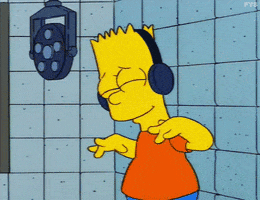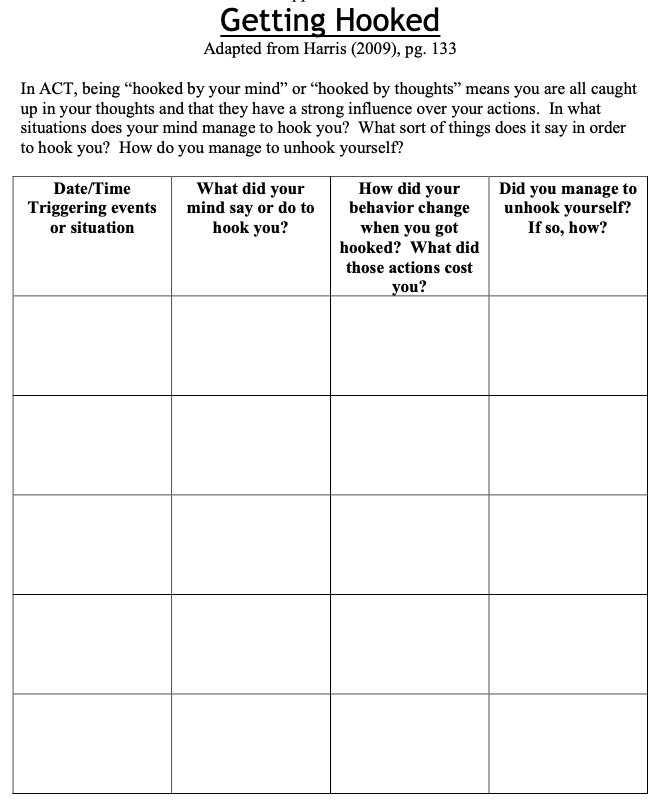I buy e-books mostly for storage issues 
- Articles
- Forum Archive
- Psychology, Psychiatry, Psychotherapy, and Health
- Therapy, Therapists, and Self-Help
You are using an out of date browser. It may not display this or other websites correctly.
You should upgrade or use an alternative browser.
You should upgrade or use an alternative browser.
- Thread starter gooblax
- Start date
More threads by gooblax

 www.techradar.com
www.techradar.com
I believe Calibre was the one I used to use:
 calibre-ebook.com
calibre-ebook.com
From calibre - About
My therapist says that my OCD/anxiety/hyper-responsibility is largely/partly from my upbringing (in my case, having very religious parents who may have been more focused on "right" and "wrong" than anything else). He says most people get a feeling of emotional security from their parents, but I am still learning to get that from myself and re-parent to some degree.
From the Childhood Emotional Neglect e-mail newsletter by Dr. Jonice Webb:
Ruminating, ideally, becomes a cue to literally turn the music up

gooblax
MVP
What size is your reader? I'd have considered an e-book if I could've read it on PC but that didn't seem to be an option.I buy e-books mostly for storage issues
I mostly have Kindle books, and I read them mostly on a laptop or my phone. I have a tablet....somewhere  ....but I like my phone more now.
....but I like my phone more now.
read.amazon.com is where I have read Kindle books on my desktop/laptop, but I am going to download the Mac app for it now. There is a Windows Kindle app too.
read.amazon.com is where I have read Kindle books on my desktop/laptop, but I am going to download the Mac app for it now. There is a Windows Kindle app too.
Last edited:
David Baxter PhD
Late Founder
I had one installed for a while for reading ebooks and it allowed you to convert from other formats like kindle to ebook pdf format.What size is your reader? I'd have considered an e-book if I could've read it on PC but that didn't seem to be an option.

Best free ebook reader in 2025: read your favorite books online
Find the free ebook reader that's right for you
I believe Calibre was the one I used to use:
calibre - E-book management
calibre: The one stop solution for all your e-book needs. Comprehensive e-book software.
From calibre - About
calibre has a built-in e-book viewer that can display all the major e-book formats. It has full support for Table of Contents, bookmarks, CSS, a reference mode, printing, searching, copying, multi-page view, embedded fonts, and on and on…
The thing that appeals to me about Dr Jonice Webb's CEN approach, aside from the fact that I can usually answer yes to all of the criteria questions, is that I find it very validating. It takes my "well I didn't experience some awful thing so I have no right to feel negatively about anything, suck it up, stop being a baby etc." and tries to get in there with "what I have experienced is enough to explain how I feel, it makes sense, and it's OK to want help with this." It doesn't work all the time, or even most of the time, because "pffft that's stupid, what a loser crying over spilled milk" but it's the most effective thing I've found to date. And without that sort of validation, I don't think any form of therapy technique is going to get anywhere with me because I'll just sabotage it the moment I start invalidating myself.
That's why when I was looking for a different therapist I used the list on her website as a starting point. But counsellor came at it with too much validation of things somewhat by assumption and activated the "no that's pathetic" but didn't leave much room for discussion.
My therapist says that my OCD/anxiety/hyper-responsibility is largely/partly from my upbringing (in my case, having very religious parents who may have been more focused on "right" and "wrong" than anything else). He says most people get a feeling of emotional security from their parents, but I am still learning to get that from myself and re-parent to some degree.
From the Childhood Emotional Neglect e-mail newsletter by Dr. Jonice Webb:
It’s like I have no emotions.
I’m numb a lot of the time.
Something is missing in me.
I have no idea how I feel about anything.
Sometimes my chest feels hollow.
I feel empty inside.
What might seem like five unrelated statements is actually five different people describing the same feeling.
Everyone says it differently because there is no standard word for it.
But for these five people, and thousands more, it is the same feeling, caused by the same problem.
The one word that sums it up best:
Empty
Of all the different emotions that a person can have, Empty is one of the most uncomfortable.
To feel Empty is to feel incomplete.
It’s a feeling of something absent or missing inside of you, of being different, set apart, alone, lacking, numb.
This is a feeling that can drive people to do a myriad of unhealthy things, like overeat, overdrink, over-shop, or even use drugs.
This is a feeling which gradually, quietly erodes a person’s joy, energy and confidence.
It flies under the radar, and carries with it a tremendous power to degrade your quality of life.
Just as every feeling we have tells us something about ourselves, so also does empty.
It tells us that we are missing something vital in ourselves.
Something that is required for happiness and fulfillment.
Is it something different for every person?
I don’t think so.
What’s missing is the same for all who feel empty.
What’s missing is…
Emotion
From talking with scores of people who have this feeling of emptiness, I have been able to identify the cause as Childhood Emotional Neglect.
Each of these people grew up in a home in which his or her emotions were not accepted, responded to or validated enough.
Our emotions are hard-wired into us.
They are the most deeply personal, biological part of who we are.
When you are raised by parents who ignore, invalidate or fail to respond to your emotions, you learn quickly to do that for yourself.
It is not a child’s conscious choice.
It is an invisible message with invisible power.
The adaptive child automatically adapts.
He ignores, invalidates, and fails to respond to his own feelings.
So as an adult, when you feel empty, what is missing in you is the same ingredient that was missing in your childhood: acceptance, responsiveness, and validation of your emotions.
But now, in adulthood, it is not from your parents that you need this acceptance.
It is from yourself.
“But I do have emotions,” you may be saying to me right now. “So why do I still feel empty?”
Picture a wall inside yourself.
On one side of that wall is your feelings, and on the other side is you.
Your feelings exist, and they are real.
Sometimes one breaks through the wall and you feel it.
But the wall is still there.
Signs That You Have Emptiness
- At times you feel physically empty inside
- You are deeply uncomfortable with feeling, or appearing, needy
- Sometimes you feel numb
- You question the meaning and purpose of your life
- For no obvious reason you sometimes wonder whether you want to live
- You feel mystifyingly different from other people
- Some important ingredient is missing from your life
- Deep down you feel you are alone
If you feel that this applies to you, please know this…
Yes, something is missing.
Yes, it is vital.
You are not needy, and you are not numb.
You are not different, and you are not alone.
Everything that you need to fill yourself is already there inside of you.
Waiting for you to open your eyes, break down the wall, and see.
The fuel of life is feeling.
If we are not filled up in childhood, we must fill ourselves as adults.
Otherwise we will find ourselves running on empty.
Last edited:
From another article by Dr. Webb:
A Surprising Emotion People With Childhood Emotional Neglect Often Feel
If you already know something about Childhood Emotional Neglect or CEN and how it affects adults you may expecwww.psychcentral.com
How to Feel Less Responsible
- Redirect your focus inward. Start paying attention to your own feelings and needs. The more you become aware of your own the less room you will have for others. This will begin to balance the scales back where they should be.
- Learn to say no. This is one of the prime skills of assertiveness, which is notoriously hard for CEN people. It may feel wrong to refuse to do someone a favor but its not. Learning how to say no, plus accepting that its a healthy thing to do will be a good start toward setting limits on your excess of responsibility.
- Accept that you are your own first priority. You learned the opposite in your childhood, and this makes it difficult to embrace as an adult. But it is true! Everyone else in the world is putting their own needs and well-being first, as they should. Its your job to make your own needs your #1 consideration.
Last edited:
gooblax
MVP
One way that not being willing to say 'no' helps me is with social anxiety stuff. For example I'll always remember the two times that my old housemate asked me to pick up some dinner for her on the way home - one was out of my way, the other was along the way. I wouldn't have done either for myself because I often talk myself out of buying anything where you have to interact with a person (even last night I really wanted to get takeaway noodles but couldn't bring myself to do it), but those two times I did it for her and got something for myself at the same time for at least one of them (can't remember for the other one).
Anyway... Last night I made myself upset thinking about leaving my psych, again. Seems to be a pretty effective form of low grade torture.
Anyway... Last night I made myself upset thinking about leaving my psych, again. Seems to be a pretty effective form of low grade torture.
David Baxter PhD
Late Founder
@gooblax, when you are ready to stop sessions with your psychologist, it will happen. I don't think it's something you need to force. If you're not ready to do it yet or to make a decision about it, try to let it go for now and push it to background processing. You don't need any extra stress or pressure.
You'll be ready when you are ready.
You'll be ready when you are ready.
gooblax
MVP
You're right, I don't want to stop seeing him and I'm not ready to stop. I can list a few ways that it's helpful for me to continue (above and beyond the whole emotional attachment thing), and when I spoke with my psych last session he said that he thinks there's benefit in me continuing with him or with someone else if I choose to. It's just so hard to not get hijacked - the moment I hear about someone else having worse problems, or I have trouble with something that I think should be easy, or start thinking about not being worth caring about, or thinking about how I like talking to my psych but he doesn't like talking to me etc. it just flips this switch... which seems to happen at least a couple of times per week... and prompts the "I need to stop but can't" mess.
David Baxter PhD
Late Founder
Comparing yourself to anyone else is not helpful. What someone else is going through is not relevant to what you are going through and trying to assess whether someone else is worse off or better off than you is not relevant to the question of whether or not you need to be in therapy or whether therapy can be helpful than you.
If you could be more inclusive and less self-critical, you'd be able to find just as many people who have it easier than you as people who seem to have "more serious" problems. None of that matters at all. The only valid question is do you have issues or problems that hinder you from fully enjoying your life? and do you want to see a therapist to help you navigate and resolve those issues or problems? If you can answer yes to those questions then you should continue to see a therapist or counselor and you fully deserve to be seen by that person.
The question of who is best suited to help you is another question entirely and one that can be addressed separately and in its own time.
If you could be more inclusive and less self-critical, you'd be able to find just as many people who have it easier than you as people who seem to have "more serious" problems. None of that matters at all. The only valid question is do you have issues or problems that hinder you from fully enjoying your life? and do you want to see a therapist to help you navigate and resolve those issues or problems? If you can answer yes to those questions then you should continue to see a therapist or counselor and you fully deserve to be seen by that person.
The question of who is best suited to help you is another question entirely and one that can be addressed separately and in its own time.
Last edited:
gooblax
MVP
I remember watching the videos once but for some reason wasn't fully into it. Should probably give it another go.
gooblax
MVP
Combination of something I read in the book (it was also in the preview but didn't get to me so much then) plus just apparently being a "bad night" - got upset about the whole not-caring thing again. *facepalms*
I call that "OCD land" -- a journey into exhausting repetition. The compulsive rumination itself doesn't feel exhausting, but it can leave me with little energy for anything else if I get too deep into "OCD land." In other words, if the obsession becomes my main concern (rather than something on the side), it's not a happy or productive situation.got upset about the whole not-caring thing again. *facepalms*
Ruminating, ideally, becomes a cue to literally turn the music up

Last edited:
gooblax
MVP
Still feeling a bit 'sabotagey' with regard to my appointment after work today.
And right now before heading to work I'm trying to wait out the storm that I've been watching on the radar which would get me if I'd left at my normal time but still hasn't hit yet. It's the slowest moving fast storm. Which doesn't help for this afternoon, when I'll have to leave work early. Hard to decide if I'll get the bus (which means I can leave slightly later) or ride my bike (have to leave earlier to get changed, maybe do a "shorts under the pants" sneaky change so I don't have to do the full change in the bathroom and waste more time, and might risk rain depending on what's happening on the radar).
And right now before heading to work I'm trying to wait out the storm that I've been watching on the radar which would get me if I'd left at my normal time but still hasn't hit yet. It's the slowest moving fast storm. Which doesn't help for this afternoon, when I'll have to leave work early. Hard to decide if I'll get the bus (which means I can leave slightly later) or ride my bike (have to leave earlier to get changed, maybe do a "shorts under the pants" sneaky change so I don't have to do the full change in the bathroom and waste more time, and might risk rain depending on what's happening on the radar).
gooblax
MVP
The storm fizzled out so I left 15mins late.
Psych is sick and has to reschedule. I responded to his text message which didn't include the reschedule details, but haven't responded to his email which does include them... Because my first instinct is "no need to reschedule, please cancel the appointment."
Psych is sick and has to reschedule. I responded to his text message which didn't include the reschedule details, but haven't responded to his email which does include them... Because my first instinct is "no need to reschedule, please cancel the appointment."
gooblax
MVP
Really having a hard time replying. I think my best bet is to put it 3 weeks from now but even that feels simultaneously too far away and too soon to be reasonable (where reasonable is never). Cue crying in the bathroom because I'll never see him again, except I can see him if I want, but it's not that simple.
What about seeing two therapists again, e.g. the counselor who specialized in emotional neglect?
Last edited:
gooblax
MVP
I barely need to see one, let alone two.
Replying is not possible. This forum is only available as an archive.
Similar threads
- Replies
- 0
- Views
- 2K
- Replies
- 1
- Views
- 3K
- Replies
- 3
- Views
- 3K
- Replies
- 0
- Views
- 2K


